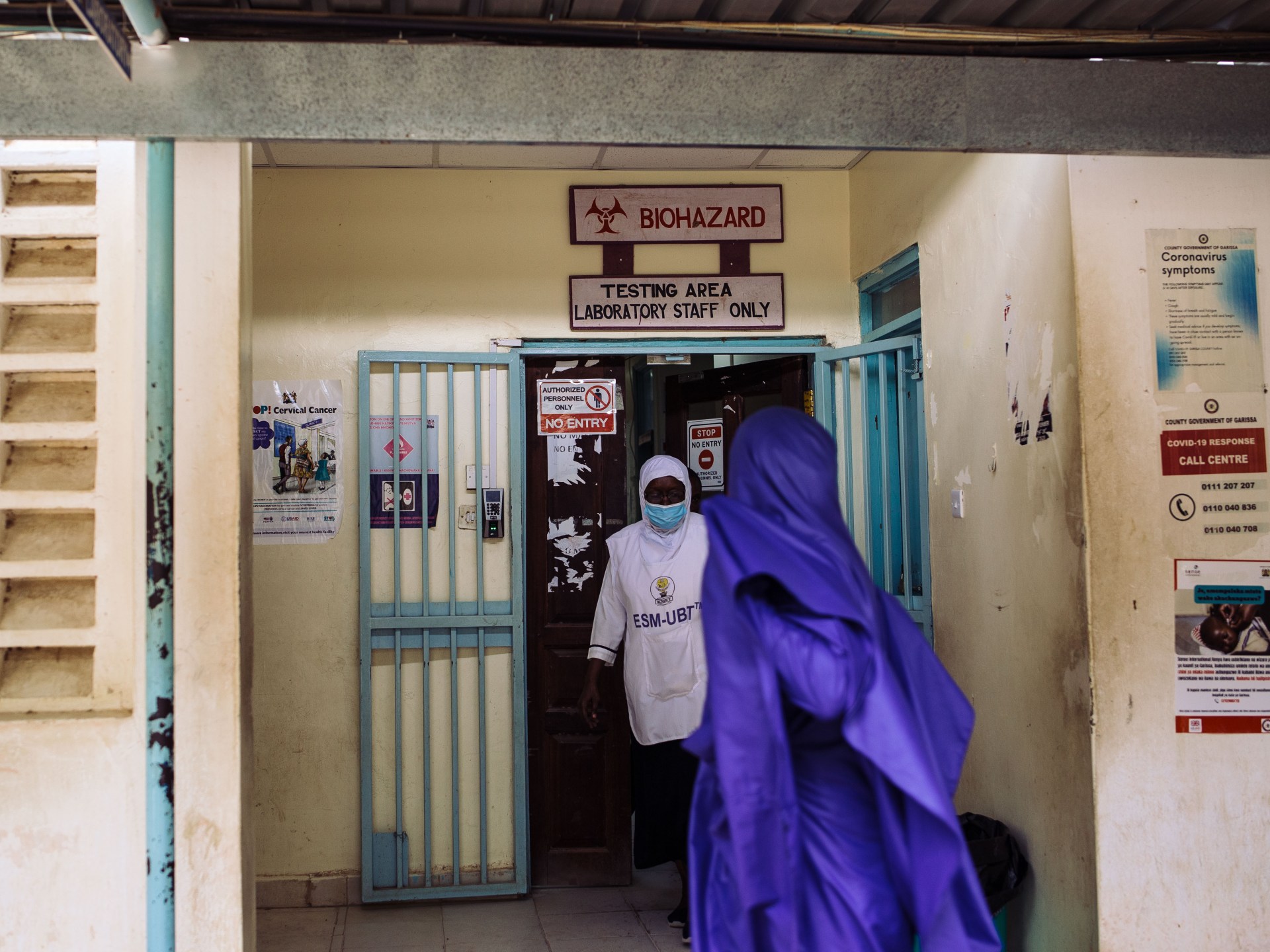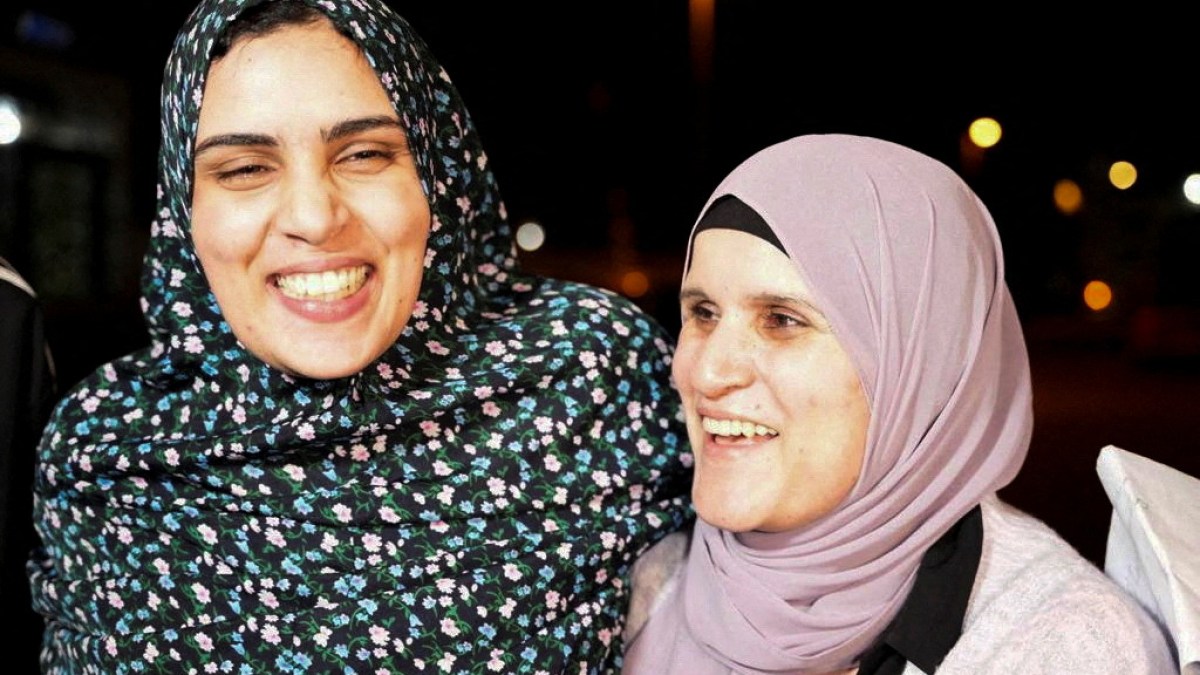
Central Gaza Strip – Israel has ordered Palestinians to evacuate parts of it Central Gazathe latest such directive as it pushes more of the besieged enclave’s 2.3 million residents into a smaller area while expanding the bombardment of the Gaza Strip.
The Israeli military on Friday ordered families to flee to shelters in southern Gaza’s Deir el-Balah, Bureij and areas of Nuseirat in the central Gaza Strip for their “safety.”
The announcement has outraged the region’s tired and exhausted residents, many of whom have been internally displaced several times since October 7.
Scenes of mass displacement once again occurred on Salah al-Din Street, which is connected to the entrance to the Bureij refugee camp.
Salah al-Din, a street that runs the entire length of the Gaza Strip, was also called “Salah al-Din.” “Death Corridor” by many in the Strip. In previous evacuations, Palestinians fleeing parts of the northern Gaza Strip were arrested, shot at and even killed – despite the Israeli army declaring this a safe escape route.
On Friday, hundreds of people poured onto the streets on foot with the remains of their personal belongings. Others loaded pickup trucks and donkey carts with mattresses, blankets, plastic chairs and whatever else they could carry.
Some could barely move after sustaining injuries in previous attacks and yet had no choice but to flee again.
This was the case with Walaa al-Nuzeini, who was Escape from Bureij in a wheelchair and for the third time since the attack began.
Al-Nuzeini was living in the Shujayea neighborhood of Gaza City when an Israeli airstrike hit her home on November 7.
“I lost my daughter, she died in my arms,” al-Nuzeini told Al Jazeera.
“We stayed under the rubble for three hours before they took us out,” she said, adding that the entire area was now “destroyed.”
Al-Nuzeini was seriously injured. She was suffering from wounds in her leg and said the nerve was affected, causing her “extreme pain”. She was brought al-Shifa Hospital for treatment, but three days later Israeli soldiers raided the facility, Gaza’s largest hospital, which is now defunct.
![[Abdelhakim Abu Riash/Al Jazeera]](https://www.aljazeera.com/wp-content/uploads/2023/12/1E3A2515-1703286306.jpg?w=770&resize=770%2C513)
“We ran out of fear and had to walk all the way to Nuseirat,” she remembers.
At that time, Israeli soldiers ordered doctors, patients and displaced people at the hospital to evacuate the medical compound, forcing some to leave at gunpoint, according to statements from doctors and Palestinian officials.
More than 7,000 people, including patients in critical condition and newborns, were admitted to al-Shifa Hospital.
The humanitarian circumstances have become “very difficult,” said al-Nuzeini. She is now making her way to Khan Younis, where her other children have set up a tent.
“This is not life. We have no water, no food, no freedom of movement.”
“We are exhausted”
Two months ago, the Israeli military urged Palestinians in northern Gaza to flee to the south, but even there it has continued to target and bomb civilians. Khan Younis is now a focus of Israeli attacks.
“There is no safe place,” Salem al-Sheikh told Al Jazeera.
The elderly man said he was forcibly evicted from his home in the Nassr district of western Gaza City.
“She [the Israeli army] told us to leave, so I fled to al-Shifa hospital, where I stayed for a month and a half. Then I went to Nuseirat,” al-Sheikh said.
He was among thousands who sought refuge at al-Shifa hospital before it was attacked by Israeli forces.
![[Abdelhakim Abu Riash/Al Jazeera]](https://www.aljazeera.com/wp-content/uploads/2023/12/1E3A2528-1703286410.jpg?w=770&resize=770%2C513)
Now he is being driven out of Nuseirat for the third time.
The latest call for evacuation comes as Israeli ground forces continue to battle Palestinian militants in the southern and central Gaza Strip.
At least 390 people were killed in the last 48 hours alone as the enclave plunged into digital darkness for the sixth time due to a communications blackout, Gaza’s health ministry said.
According to the United Nations, almost 1.9 million people are now displaced – more than 80 percent of the Gaza Strip’s pre-war population.
Many are crowded into the Rafah governorate in southern Gaza, where al-Sheikh is headed.
The Health Ministry has warned that illnesses are on the rise there due to a lack of supplies, medicine, clean water and much-needed fuel.
Meanwhile, UN-run schools have largely become overcrowded shelters for thousands of displaced Palestinians.
“It was extremely difficult,” al-Sheikh said. “We walked from al-Shifa… we passed Israeli army tanks until we reached a school,” he said, referring to the second displacement.
However, the schools are “full,” he said. “There’s no room.”
![[Abdelhakim Abu Riash/Al Jazeera]](https://www.aljazeera.com/wp-content/uploads/2023/12/5Q8B0124-1703286599.jpg?w=770&resize=770%2C513)
Many believe that UN designation of these buildings will protect them from constant Israeli bombardment.
However, several schools were targeted or damaged by Israeli airstrikes in their area. According to the UN Relief and Works Agency for Palestine Refugees (UNRWA), around 1.4 million Palestinians are trapped in the organization’s overcrowded and unprotected shelters, which are now uninhabitable. The poor conditions in the temporary accommodation have already led, among other things, to an outbreak of scabies and smallpox.
Al-Sheikh said he just wanted to return home.
“We are exhausted and moving from one place to the next. They must allow us to return to our homes.”
Around 60 percent of all residential units in the Gaza Strip, i.e. 254,000 houses, were damaged. More than 20,000 Palestinians have been killed since the start of the latest offensive, including at least 8,000 children.
Human rights groups have warned of the consequences of mass displacement, with organizations such as Human Rights Watch calling it a “war crime.”
Israeli Prime Minister Benjamin Netanyahu must “stop committing crimes and killing other people’s children,” al-Sheikh said. “He has to stop destroying houses on people’s heads.”






Recent Comments